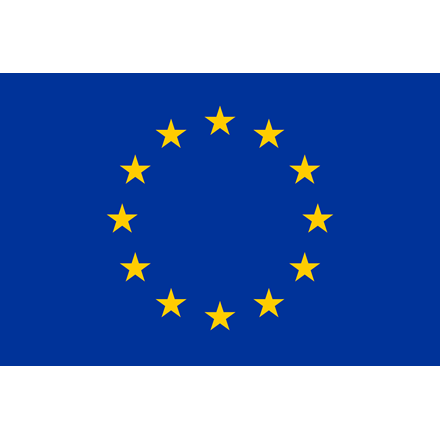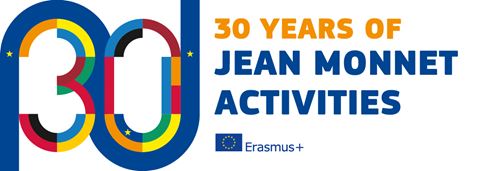
Promoting research and education in European integration
Co-directed by Professor Han Dorussen and Dr Alexandra Hennessy, the Jean Monnet European Centre of Excellence at the University of Essex is a focal point of expertise and knowledge on the European Union. It was set up in 1999 and promotes research and teaching on issues related to the European Union.
We bring together leading experts in European Union politics, law, languages and other disciplines, to create links between the various disciplines and resources in European studies, and to form working relationships with academic institutions in other countries. Through the work of the centre, we promote and share our specialist knowledge with students, policy makers, civil servants, organised civil society and the general public.
The work of the Centre can be organised into three broad categories; research, education and publications. We regularly contribute to Erasmus+ and other EU funded research projects and Jean Monnet networks. We frequently work with EU policy makers in Brussels and other European capitals in an advisory capacity.
![European flags flying in front of the EU headquarters building.]() "The promotion of teaching, research and debate on EU developments is the core vocation of the Jean Monnet European Centre of Excellence."
"The promotion of teaching, research and debate on EU developments is the core vocation of the Jean Monnet European Centre of Excellence."
Our work
Our research
Our research covers a wide range of political, legal and cultural aspects of the European Union, including but not limited to:
- the EU’s external relations with China, Japan and other Asian countries, covering political, security and trade issues
- differentiated European integration
- democratic quality and institutional design of the EU and European constitutional and human rights law
- the history of European arts
- security threats and policy responses in the EU and abroad
- German politics
- coalition governments and their government stability
- aspects of contemporary art, architecture and urbanism, particularly in relation to the European Union and the process of globalisation
- The reduction of non-communicable diseases and the associated health inequalities through effective use of law and legal instruments.
Read more about the work of our members and discover highlights of their research by visiting our research.
Our education
Our in-depth understanding of European affairs and our links with other universities worldwide provide opportunities for a first-rate student experience, whether as an undergraduate student or as a postgraduate research student studying European Studies.
Learn more about how our research inspires our education at the University of Essex.
Our members
Our members’ interests and expertise represent a wide range of political, legal and cultural aspects of the European Union and its relationships with the rest of the world.
Our experts have strong links with national and international scholarly networks such as UACES (University Association of Contemporary European Studies), the International Studies Association, the European Union Studies Association, the British Academy of Social Sciences, Chatham House and of course the Jean Monnet Community. Professor Emil Kirchner was elected a Fellow of the Social Sciences by the Academy of Social Science in 2009.
Research funding bodies rely on expert review by our senior academics. We have worked with The European Commission, Deutsche Akademische Austauschdienst (DAAD), the Goethe Institut and many others. Holder of the German Order of Merit, Professor Kirchner is regularly invited to speak at government and academic institutions in Europe and around the world.
Learn more about our individual members' research interests and view their staff profiles by visiting our members.
"Part of our mission is to provide historical and contemporary analysis, to engage in transnational teaching and research networks, and to disseminate relevant information to national and international academic and policy-making communities as well as the wider public via publications, conferences and other debating activities."

Visit the European Commission website for the Education, Audiovisual and Culture Executive Agency to discover what the Jean Monnet status means. Find out who can benefit from it, what support is available, who can apply and the programme of upcoming Jean Monnet events.
Our education
Our research and our international connections allow us to offer insightful and topical courses and to expertly support both undergraduate studies postgraduate research in European Studies. Below is a list of courses, modules, opportunities and programmes which are directly influenced by the work of the centre:
BA European Studies
The BA European Studies programme is a highly flexible degree course, which can be combined with study of one or more modern foreign languages, or with politics.
Please visit BA European Studies for more details.
Undergraduate modules
Undergraduate students can access many teaching modules on topics informed by our research.
Below is a selection of modules which benefit directly from the work of the centre:
Taught postgraduate teaching modules
Taught postgraduate teaching modules which are directly informed by the work of the centre include:
PhD supervision
Our members are open to supervise PhD students researching topics related to EU law, European politics, European art and other areas of international relevance.
Current and past PhD topics have covered:
- EU migration law
- Political intolerance in Western Europe
- Collective Action in Times of Crisis... in the European South
- Bargaining on the European Constitution
- European Integration and Electoral Democracy
- Political representation and the Far Right in Germany
- Populist practices in Brexit Britain
- The Scottish independence referendum
- Contemporary French republicanism and populism
Recent examples of our PhD supervision:
- The 2020 PhD thesis of Konstantinos Roussos, supervised by Professor David Howarth: Collective Action and the Production of Alternatives in the Crisis-ridden European South: Understanding the Politics of Commoning and Solidarity through the Greek Experience. Research articles linked to this PhD are published or forthcoming in academic journals, for example in Social Movement Studies
- The 2022 PhD thesis of Sarah Wagner entitled: Radical Left Parties and the Role of Euroscepticism.
- Previous PhD research students have since graduated to academic appointments at British and international universities.
If you would like to discuss PhD supervision in any area related to the European Union, please visit our members. Here you will find links to our members' academic staff profiles, which include detailed information regarding research interests, supervision status and staff contact details.
Exchanges with Kobe University
Our Centre has close links with Kobe University, a top-ranked university in Japan. Postgraduate student and staff exchanges have offered opportunities for an experience of different cultures, to further an international career or to prepare for a PhD. One student reported:
“I had the chance to meet many scholars from Japan but also guest lecturers from the U.S. and Europe who shared their own views in respect to the field and whose opinions helped me to structure my own beliefs. On the other hand, I had the invaluable opportunity to face the Japanese reality, culture and traditions.”
Erasmus+ study abroad programmes
The University of Essex was awarded an Erasmus Charter for Higher Education. This allows Essex to take part in Erasmus+, a programme funded by the European Union which enables students to study or work in Europe, and for staff to teach or undertake training in another European country. Visit Study Abroad to learn more about the programme.
Previous students have had the opportunity to study at the following institutions:
- Università degli Studi Roma Tre in Italy
- University of Maastricht in the Netherlands
- Université Paris-Dauphine in France
Young Universities for the Future of Europe (YUFE)
Essex is one of ten young universities helping to create one of the first true European Universities. If you're a bachelor student in your second year or above, you'll have the opportunity to study for a European diploma, by compiling your own curriculum from all courses offered across the eight YUFE universities. In addition, the YUFE Virtual Campus will host all members’ online course offers.
Learn more about YUFE at Essex.




